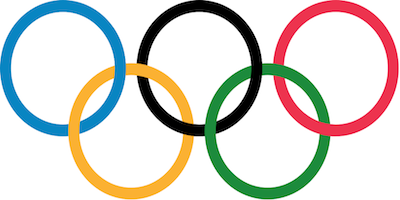
Devastating Associated Press investigation into next year’s Summer Olympics in Rio de Janeiro:
RIO DE JANEIRO (AP) — Athletes in next year’s Summer Olympics here will be swimming and boating in waters so contaminated with human feces that they risk becoming violently ill and unable to compete in the games, an Associated Press investigation has found.
An AP analysis of water quality revealed dangerously high levels of viruses and bacteria from human sewage in Olympic and Paralympic venues — results that alarmed international experts and dismayed competitors training in Rio, some of whom have already fallen ill with fevers, vomiting and diarrhea.
It is the first independent comprehensive testing for both viruses and bacteria at the Olympic sites.
Brazilian officials have assured that the water will be safe for the Olympic athletes and the medical director of the International Olympic Committee said all was on track for providing safe competing venues. But neither the government nor the IOC tests for viruses, relying on bacteria testing only.
[…]
Olympic athletes are almost certain to come into contact with disease-causing viruses that in some tests measured up to 1.7 million times the level of what would be considered hazardous on a Southern California beach.
[…]
More than 10,000 athletes from 205 nations are expected to compete in next year’s Olympics. Nearly 1,400 of them will be sailing in the waters near Marina da Gloria in Guanabara Bay, swimming off Copacabana beach, and canoeing and rowing on the brackish waters of the Rodrigo de Freitas Lake.
John Griffith, a marine biologist at the Southern California Coastal Water Research Project, examined the protocols, methodology and results of the four rounds of AP tests in the three outdoor water sports sites. All three sites were found to be unsafe.
Kristina Mena, a U.S. expert in risk assessment for waterborne viruses, examined the AP data and estimated that international athletes at all water venues would have a 99 percent chance of infection if they ingested just three teaspoons of water — though whether a person will fall ill depends on immunity and other factors.
The IOC should have pulled the plug on the Rio Olympics after the infrastructural trainwreck that was the 2014 Brazil World Cup, which was by comparison a much easier task to begin with.
Instead, the IOC responded to the AP report by saying Brazil should just stick to bacteria testing and that it would all be ok. In reality, many athletes already training on site reported becoming extremely sick repeatedly.
Even local Brazilians aren’t benefiting from this hosting opportunity:
As part of its Olympic project, Brazil promised to build eight treatment facilities to filter out much of the sewage and prevent tons of household trash from flowing into the Guanabara Bay. Only one has been built.
[…]
Rio Mayor Eduardo Paes has said it’s a “shame” the Olympic promises wouldn’t be met, adding the games are proving “a wasted opportunity” as far as the waterways are concerned.


